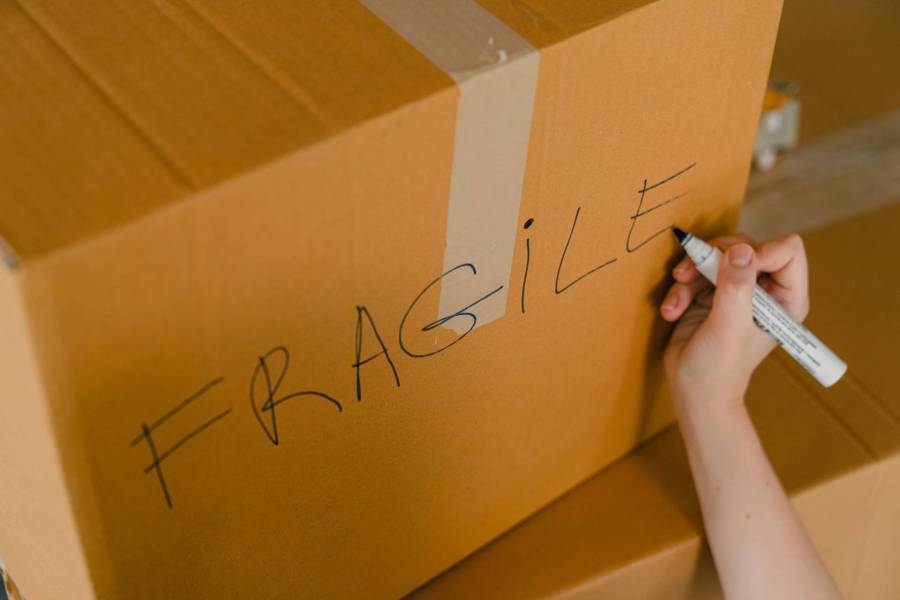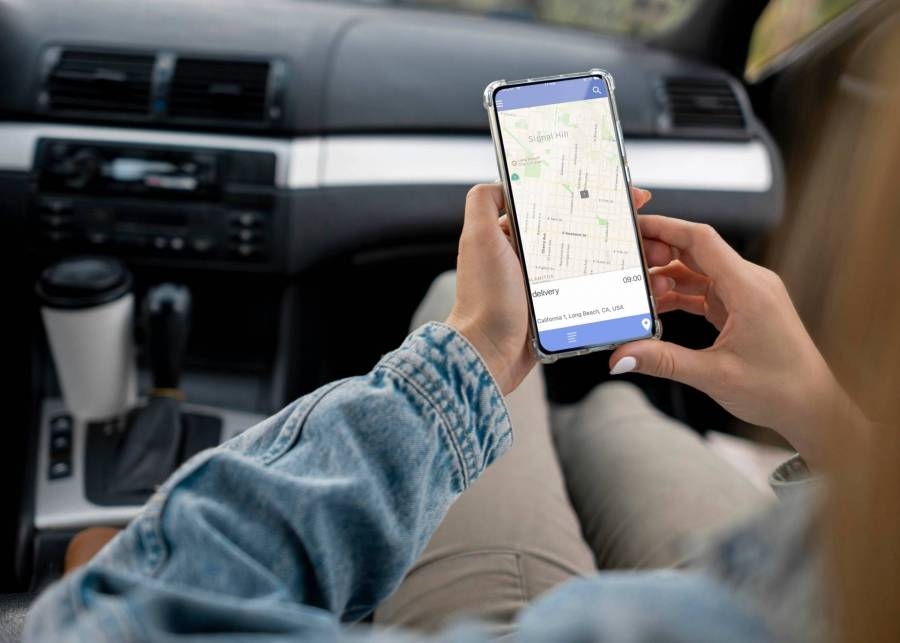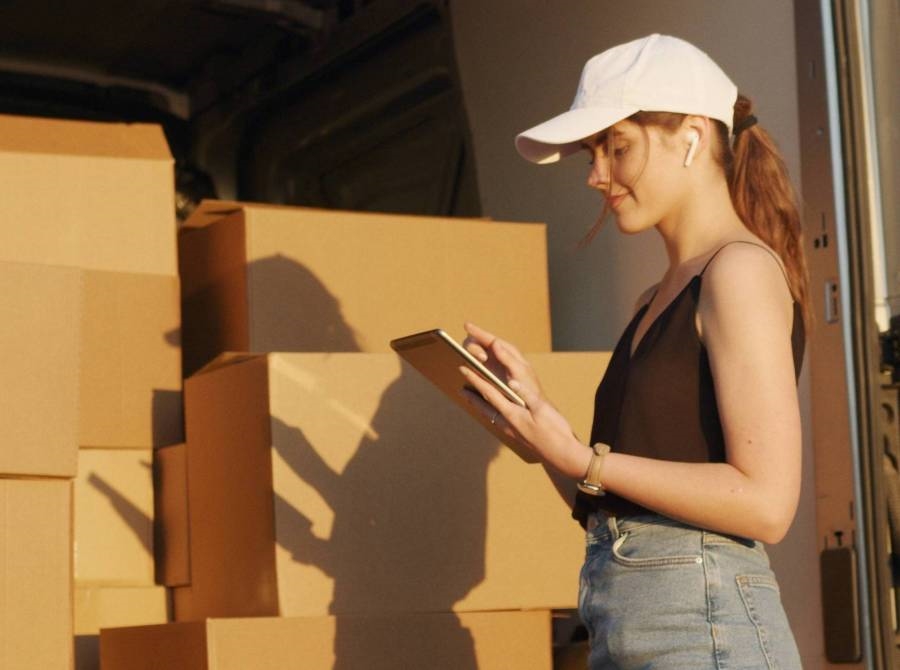The Problems of Last Mile Delivery and 5 Ways to Improve It
The Problems of Last Mile Delivery and 5 Ways to Improve It

Using human-centered innovation, AI, and SaaS to achieve a more effective last-mile delivery, while making a positive impact on the environment.
A Personal Story — Where’s My Passport?
After not seeing my family for years, I purchased a flight to visit them for Christmas. I will never forget that afternoon in December 2020 when I was impatiently waiting for my U.S. passport. I couldn’t believe that something so personal and delicate as my passport — was located — who knows where. Lost in New York City, trying to find my abode. I repeat: I was impatient. I couldn’t wait all day just sitting on my couch, so I escaped to the dollar store to buy more detergent.
Believe it or not, that specific moment was when the USPS truck ran through Myrtle Avenue in the direction of my house. I moved as fast as I could because I knew that my naive baby passport was there. “PLEASE DON’T GO,” I shouted to the USPS truck guy who was about to leave.
The USPS guy smiled through the window, stopped the truck, and brought it to my hands. This was at the beginning of the pandemic, so imagine, I almost cried and had to hold myself back from hugging the postal worker.

Last Mile — But Not the Least Mile
That final “knocking on the door” moment when people receive their packages is known as the last mile. It is the final delivery leg from the supply chain that takes the orders from the retailer to the customer’s arms.
It is also during the last mile that many things can go wrong — like almost missing your passport — and where many aspects can be reevaluated to remove anxiousness and disappointments of the customers.
NOTE: The four main steps to Supply Chain are: Planning, Sourcing, Manufacturing, and Delivery. If things go wrong — then there is another step — a devastating one — The Return.
Lonely Boxes in the Odyssey to Reach Your Door
Delivery is the fourth step of the supply chain, which means that it’s affected by the timing of the previous steps, specifically manufacturing. As a result, the last mile is unpredictable and its efficiency depends on the communication of the various stakeholders in this system, including the consumer.
Like all relationships — communication is key — and communication is usually a challenge.
The consequence of frequent miscommunications is that packages arrive too early or too late, which not only frustrates the consumer but leaves packages unguarded. Computers, mouse traps, art, books, you name it. Items on different levels of essentiality and urgency, entertainment and luxury — anything and everything.
Essentially — all packages can end up outdoors, exposed to various weather conditions, and vulnerable to theft, especially in urban zones which are facing an increase in overall index crime, like New York for example.

According to Eyal Shats, co-founder of SimpliRoute, a decision-making SaaS platform for logistics, the main challenge of the last mile at a global level is the agility and speed that it demands. “The terms in which products are delivered have been shortened, to the point that today some businesses offer delivery within the same day that the purchase was made.”
A Never-Ending Problem
The cost of this step is expensive in multiple ways. “Free delivery” is marketing. The cost is either included in the price of the product, or it is unfairly taken from the workers’ salaries. The overall process adds up in gas emissions too — which in 2021 grew by 6.2 percent in the United States.
Time costs more than just money; more time in logistics results in more gas emissions. The gas emission cause more harm to the environment. Plus there will always be delays caused by traffic at any given time of the day.
The last mile seems to be a never-ending problem.
Online shopping is a service in high demand that will keep on growing as the next billion online users are born. The wait, delays, and stolen boxes, all generate friction in the shopping experience, and therefore cart abandonment and other issues.
As designers and producers, we don’t want users to abandon us, so we need to find better ways to work with and for the consumer.
NOTE: In digital marketing, abandonment refers to a situation when a visitor accesses a website but terminates any actions by leaving the page.
Lonely Boxes Can be Happy
Yes, you read my mind, we have to consume consciously and choose products that last longer, that’s the first solution to these issues. But remember that deliveries not only carry treats and luxuries. They also carry medicine, food, documents, educational supplies, and so on.
When I asked Eyal Shats how SimpliRoute is developing innovations in this field, he emphasized that “the implementation of technology in the optimization of processes leaves great savings, and not only in costs but also in time.”
And it’s true, the implementation of SaaS like SimpliRoute can reduce the routing time by 80% and the number of vehicles needed to make the dispatches by up to 10%. This also lowers costs associated with logistics by 34%, increasing the performance of each delivery by 25%. As a result, it reduces the carbon footprint associated with these operations by 30%.
Five Priorities for Industry Leaders to Achieve a Happy Last Mile
-
1. Innovate using algorithms
Powerful algorithms optimize your delivery plan according to the fleet, destination, and available drivers. AI and machine learning allows the product to apply its own experience, and use that information to enhance the service, providing more accurate options.
-
2. Meet software as a service (SaaS)
Apply new technologies to increase efficiency in the delivery routes. This reduces logistical costs and increases customer satisfaction using software that takes the shape of handy apps and websites.
-
3. Build products and systems that are user-centered
These apps and websites are spaces where consumers can participate, giving them the power to follow up and see what’s going on. They can rapidly report changes, requests, or complaints, and even express satisfaction when things go well. This immediate feedback and participation help services get better.
-
4. Iteration generates perfection
Systems — and the people that design them — don’t evolve from plain old repetition. Rather, they learn from their mistakes, bugs, lost bets, and by listening. When we embrace problems as opportunities and prioritize the voice of users, processes evolve.
-
5. Prioritize creating a positive impact
Simplifying the delivery stage by optimizing routes, results in a positive impact on the planet. Yes, the horizon of zero emissions economy-wide by no later than 2050 is achievable.

When Lonely Boxes Meet Human-Centered Innovation
As designers and industry leaders, we have the responsibility to focus on building a healthier and more resilient infrastructure.
These transformations will be a challenge for the development of logistics since they offer new perspectives. The technologies created to make the supply chain more efficient will be increasingly standardized at a global level.
A standardized supply chain will let us handle the import and export of products agilely.
Working together we can unleash new opportunities, create jobs, drive competitiveness, and cut pollution. We can guarantee that shiny little passports make their way to the right home.
Image Credit: Rodnae Production; Pexels; Thank you!
The post The Problems of Last Mile Delivery and 5 Ways to Improve It appeared first on ReadWrite.
(149)


